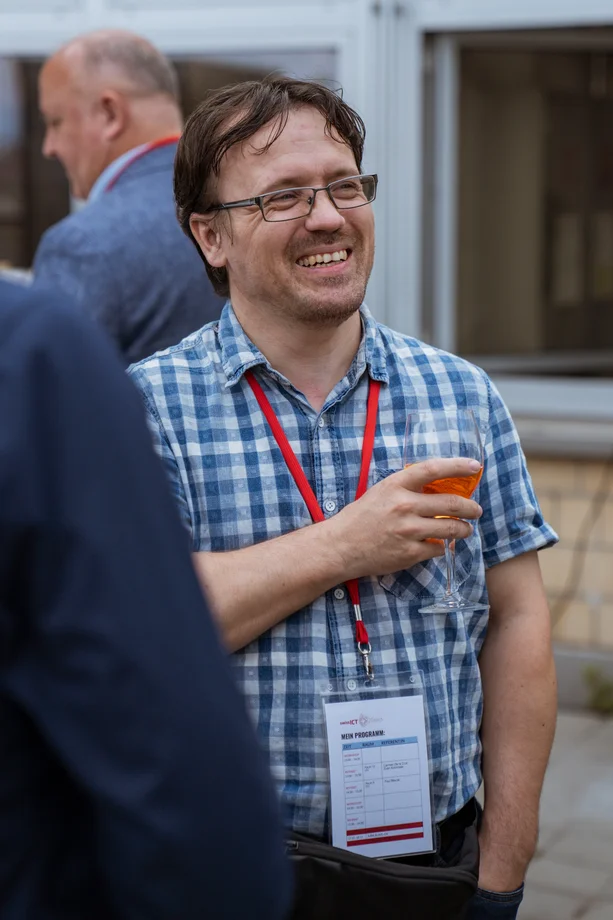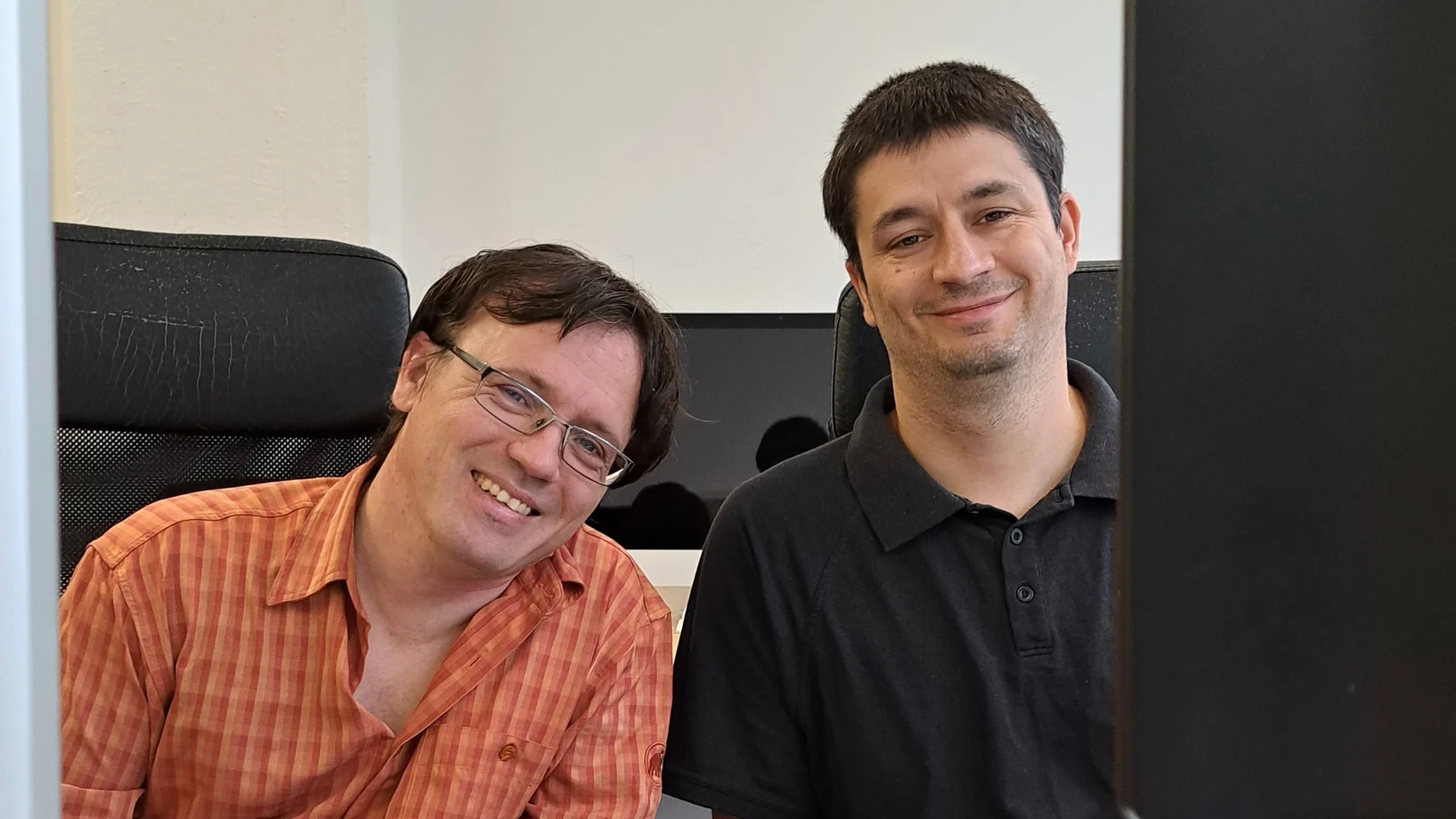MD Systems outlines a future vision of learner education by expanding courses with collaboration on openly distributed ecosystems. Unfortunately, there is currently a lack of the necessary skills in the area of open source and we have noticed that many people are overwhelmed by open source collaboration. There is also often a lack of understanding of the potential that this way of working and the ecosystems offer for learners. Here is a brief introduction to the topic and the benefits for learners, companies and the education system. We show what advantages the open source method offers and how we can give social transformation a boost.
Some background
The Federal Council has defined the focus topic "Open Source" for the year 2025. The topic of Switzerland's digital sovereignty is gaining more and more attention due to the politically difficult situation with the USA and explicitly calls for open source.
In the spirit of "public money, public code" the scope of the Federal Act EMBAG (use of electronic means to perform official duties) was extended to the entire Federal Administration in 2025.
Due to the global systemic relevance the UN maintains a list of system-critical open digital goods (Digital Public Goods, DPG), with reference to the Sustainable Development Goals (SDGs). The value of these goods is created through open collaboration across project boundaries, national borders and organizational boundaries.
The term "open source" originally stands for software that is free to use, view and distribute, but can also be viewed and modified. This requires all sources to be published and tools for effective collaboration. We use a more modern, broader understanding that includes all free digital goods (open) and the sources of their creation (source).
Open source collaboration is a method and prototypical activity. It enables the most important future skills to be learned practically and intuitively at all skill levels, see also OECD Future Skills 2030 and WEF Future Jobs Report 2025. Scaling this competence is indeed also necessary to overcome social challenges and establish a transformation.
The Skills model for ICT professions and the Competence levels:
How open source collaboration works
Global open source collaboration also enables young people to quickly establish themselves as specialists and raise their own personal level of seniority within a short space of time. They learn from the best in the world.
By collaborating with the best, mentoring relationships are created and you have the opportunity to become an international leader yourself and appear at international conferences (a clear advantage of the open source community).
For many small companies, it is difficult to provide the necessary resources to introduce a young person to the professional world. With open source collaborations, companies can support each other and have the opportunity to share resources. Problems (lack of specialist knowledge, better interface with management, etc.) can also be looked at and solved from new angles.
In order to prevent the shortage of skilled workers, we need sustainable training and further education opportunities. At the same time, there is a growing willingness to introduce new approaches to education. With the open source method, learners can supplement and expand their seniority levels within a short space of time through global collaboration with the best (subject specialists).
Collaboration is a skill that is not yet taught as part of apprenticeship training, but will be essential for future collaboration. In addition, open source collaboration can offer better accessibility for introverts due to clear and direct communication about issues. For others, it may be a challenge and they will first have to get used to it.
As soon as open source collaboration is part of education and training, it will act as a scalable lever against the shortage of skilled workers in Switzerland. Through global collaboration, we can benefit from the best and strengthen the Swiss economy, the switzerland's digital sovereignty and can be resilient in the face of future challenges without breaking the value chain along the way.
Our perspective
We demand: Open source collaboration should become an integral part of vocational education and training, and should also become a long-term goal in the curriculum and model curriculum. Especially in the STEM professions, but also in the creative environment.
Unfortunately, the necessary skills are currently lacking and we are finding that many are overwhelmed with open source collaboration because they cannot control collaboration in the classroom. Unfortunately, because there is often a lack of understanding, learners do not see the potential of these ecosystems and the fact that the acquisition of this additional knowledge has so far been "voluntary" does not exactly support the desire to learn.
Once young people understand that the world's most difficult challenges can only be solved through global collaboration of the best, they will realize why open source collaboration is essential in the future.
Such open collaboration between scientists has long been established and modern achievements such as the Internet are only possible thanks to open collaboration and open standards.
We have found in the past that it is a challenge for a small company to inspire competent learners and invest resources in their training. Sharing in the open source ecosystems can provide relief here and lead to a company being able to afford the learner. We have been working in the open source universes for years and rely on our apprentices having the opportunity to deepen their knowledge and enhance their portfolio in the long term. In today's world, global collaboration is an important prerequisite and this methodological competence should be integrated into the training. In this way, learners acquire "future skills" and are ready for the job market and have the tools to make a personal impact on social change.
The learners of today shape the world of tomorrow.
We are therefore calling for open source collaboration to become an integral part of education in the future.
Added value for learners
- Expand portfolio / Open Source Curriculum
- Integration and establishment in open source ecosystems
- Realization of real events (events, etc.)
- Global collaboration / new world insights
- Exchange among learners in Switzerland
- Qualification for good jobs (skills gained increase the chances of a better paid job)
- Equal opportunities (know-how can be acquired)
- Opportunities for the future
- Access to international experts / mentoring
- Can better develop their potential / strengthen their own personality
- Can contribute more to value creation in the open source ecosystem and the teaching business
- Additional knowledge
- Problem solving
- Independence, resilience
- Personal responsibility
- Acquire leadership know-how
Young people are familiar with today's technological possibilities and are used to connecting with each other in various groups. Be it in the soccer chat on WhatsApp or the closed Instagram group for upcoming events, the need to network with peers and exchange ideas with like-minded people is part of their everyday lives.
Open source collaboration gives learners invaluable added value. They invest in a system, product or tool and get back much more than the time they have invested themselves. This is possible because many different people develop, plan and implement a "thing". The time saved (the wheel does not have to be reinvented) means that apprentices have more to offer the training company.
Learners can acquire the necessary "future skills" to independently enhance their portfolio and establish themselves in open source ecosystems with the support of the teaching company. This could be through participation in hackathons, integration in community meetings or the organization of cross-company events. There are many opportunities for self-realization. Learners are given real responsibility and have the opportunity to work on real projects rather than solving some contrived case for the school with no real added value. Integration into the normal working day, so to speak.
Important: Open source collaboration accelerates the maturation process towards seniority.
Added value for training companies
- Sharing of freely available resources (added value)
- Pooling of resources (cross-company task sharing)
- Accessibility is free, money is not relevant
- Exchange among learners
- Expansion of the company offer for learners
- Patents, future employees
- Improves cost-benefit of learners
- Reduces costs in mediation
- Increases quality of education (learning from the best)
- Improves competitiveness
- Additional knowledge
Small companies in particular can use open source collaboration to broaden their perspective and company portfolio. For trainers, motivated learners are the key to achieving training goals together. In an open source ecosystem, learners have the opportunity to contribute and develop their personality and skills in the best possible way. The exchange and learning can be approached at their own pace, which reduces the pressure on young people and positively supports the working atmosphere. The performance of the individual is increased and young people are encouraged by the freedom of open source (everyone is equal) and the associated responsibility towards the community. The basic idea is to benefit from the community and to contribute one's own skills so that others can benefit.
Operational problems can meet solutions globally and through collaborative work in open source ecosystems, freely available tools can be created and the knowledge of others can be incorporated into one's own projects, products and solutions.
Open source collaboration makes it possible both to learn from the best and to use the best components for your own ideas and creations. There are no limitations. Thanks to the reference to reality, the company's problems can be solved in the best possible way.
Added value for the education system
- Sustainable training
- Future skills and challenges are covered
- Accelerated learning processes, relief for other areas of training
- Experienced specialists
- Freely available tools
- Satisfied learners and families
- Social transformation
- Education system becomes a driver of innovation and transformation
- Pooling of resources
- Awareness and sensitization of the public
How will the Swiss education system benefit, if open source collaboration finds its way into textbooks? Teaching and learning is changing in the same way as our society is and the "future skills", like the "future challenges", lie in the virtual world.
These trends have been identified and open source collaboration is the optimal answer.
Our young people need the opportunity for self-identification and a solution for teaching the skills required in today's world. In the future, it should be possible to break through company boundaries and network at all levels. Creating tools together and pooling resources fairly. By upgrading training, the balance of power will change and learners will gain more self-determination and participation skills. After all, this is precisely what motivates and inspires young people. A scaled transformation makes training more valuable, efficient and sustainable.
How can we tackle this?
The added value of open source collaboration is manifold and everyone involved can only gain. In the next blog, you can read about how we as a small company are tackling this topic and what we are actually doing to make the education of learners more valuable.



